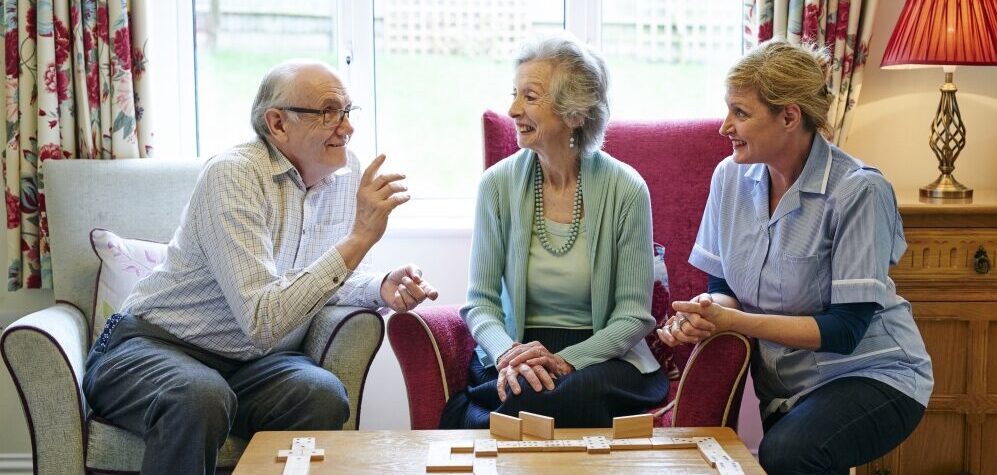
As January's chill takes hold, it's a timely reminder to consider the care requirements and challenges needed by our elderly, especially those battling Alzheimer's disease. Alzheimer's, a type of dementia, greatly affects not only the individuals diagnosed but also those who care for them. This blog aims to educate and guide you through the journey of professional Alzheimer’s care in a care home setting, offering insights and compassionate strategies.
Understanding Alzheimer's Disease
Alzheimer's disease is a progressive neurological disorder that results in brain cells to degenerate and die. It's the leading cause of dementia—a constant decline in cognitive, social, and behavioural abilities that disrupts a person's ability to function independently.
Early Signs and Symptoms
Spotting the early signs of Alzheimer's can be essential for prompt care. These may include:
Memory loss influencing day-to-day tasks, such as forgetting newly acquired information or important dates.
Challenges in planning or solving problems.
Difficulty completing familiar tasks at home, work, or leisure.
Confusion with time or place.
Trouble understanding visual images and spatial relationships.
New problems with words in speaking or writing.
The Importance of Professional Care
Professional care in a specific care home provides specialised attention and support here adapted to the needs of Alzheimer's patients. This includes:
Personalised Care Plans
Professional care homes conduct thorough assessments to formulate personalised care plans. These plans cater to the unique needs of each resident, adapting as the condition progresses.
Trained Staff
Care homes have staff skilled in dementia care, guaranteeing residents receive knowledgeable and empathetic support.
Safe and Supportive Environment
A well-planned environment can help reduce confusion and agitation in Alzheimer's patients. Care homes are crafted to be safe and simple to move around in, minimizing the risk of accidents.
Choosing the Right Care Home
When choosing a care home for a loved one with Alzheimer's, consider the following:
Staff Expertise: Ensure the staff has appropriate training in dementia care.
Facilities: Look for a home with a layout that is easy to navigate and has safety features.
Activities: Check if the home offers activities that are suitable for varying stages of dementia.
Family Involvement: A home that encourages family participation in care plans can be advantageous.
Engaging Activities for Alzheimer's Patients
Engagement in meaningful activities is crucial for Alzheimer's patients. These activities can enhance quality of life and might involve:
Music and art therapy.
Light physical exercises like walking or gentle yoga.
Brain-stimulating activities like puzzles.
Gardening or other outdoor activities.
Communication Tips
Good communication is crucial in Alzheimer's care. Here are some tips:
Use simple words and short sentences.
Be patient and give them time to respond.
Avoid arguing or trying to reason with irrational thoughts.
Use nonverbal cues like smiling and touch to communicate affection.
Supporting Family Members
Taking care of someone with Alzheimer’s can be challenging. Support for family members is essential and can come from:
Support groups.
Respite care services.
Educational resources to understand the disease better.
Conclusion
Alzheimer's care demands patience, understanding, and a supportive community. Professional care homes play a key role in offering specialised care and support. By opting for the right care home, engaging in appropriate activities, and understanding effective communication techniques, we can guarantee our loved ones receive the compassionate care they deserve.
alzheimer care poulton le fylde